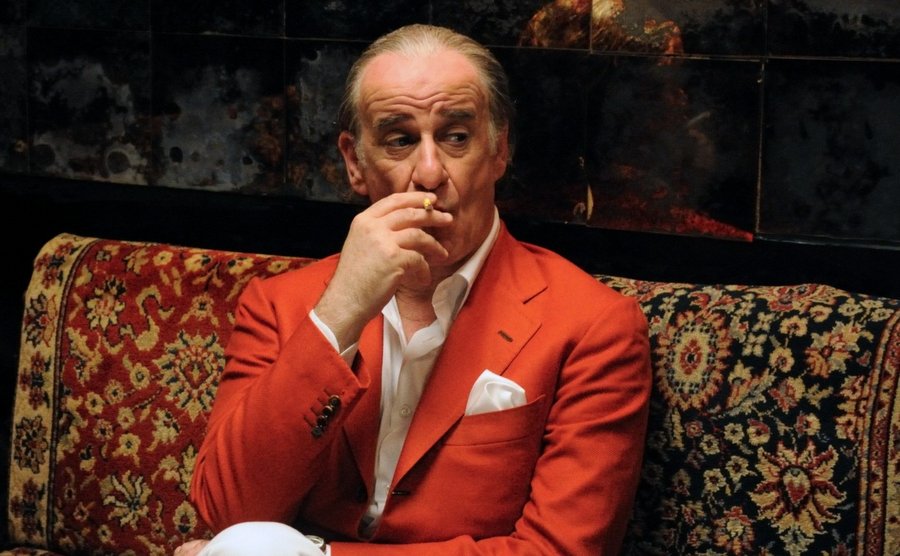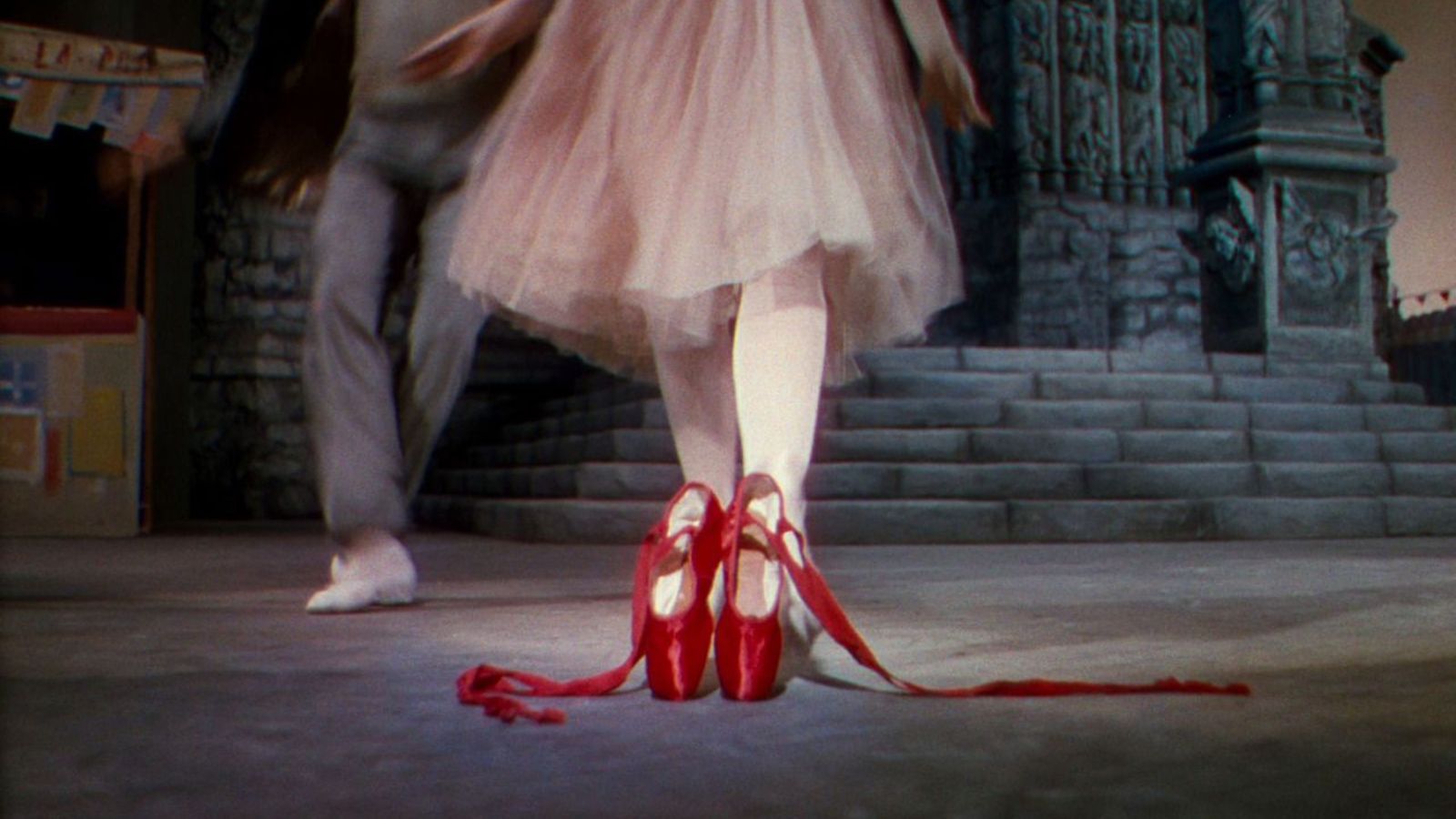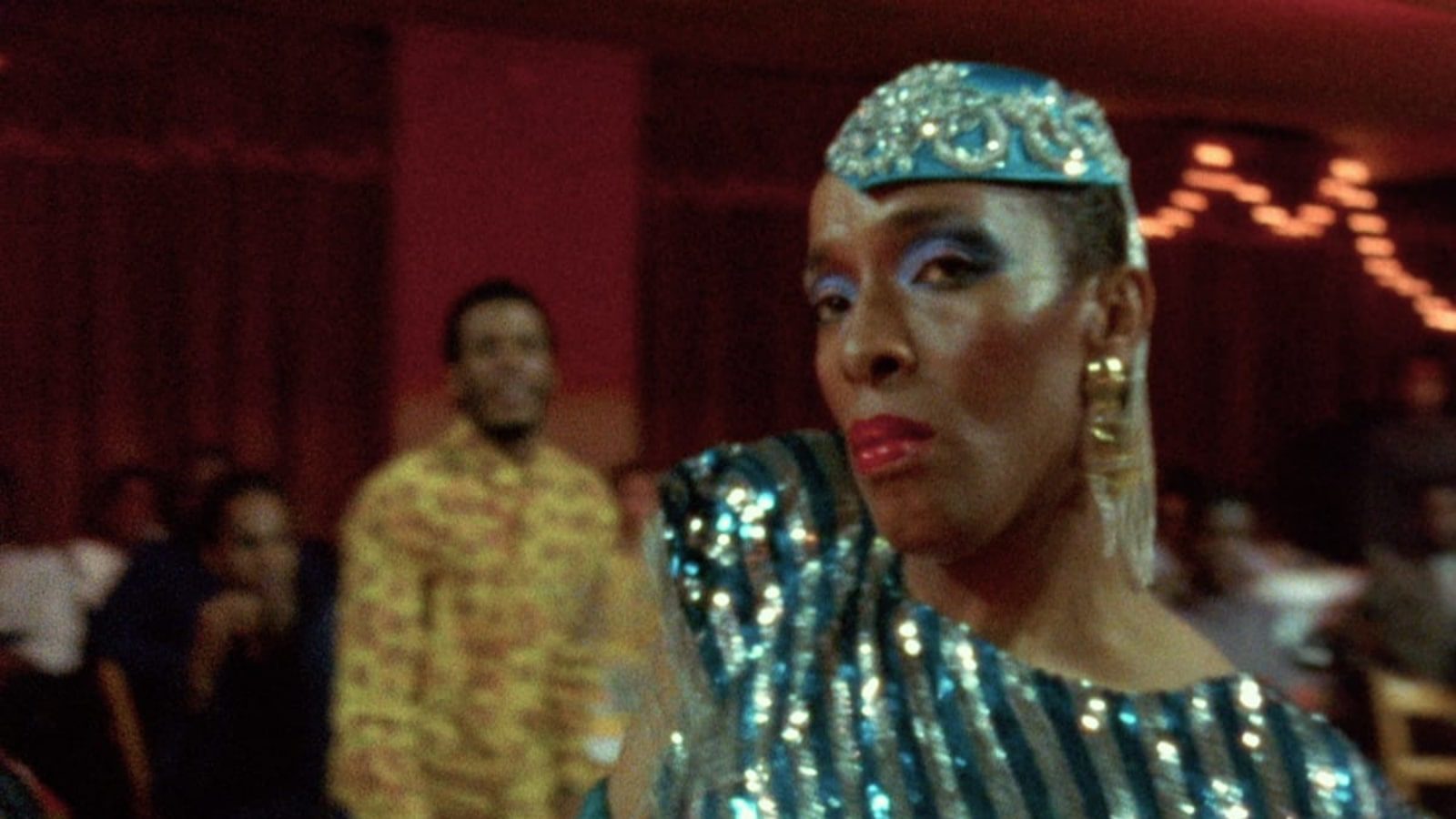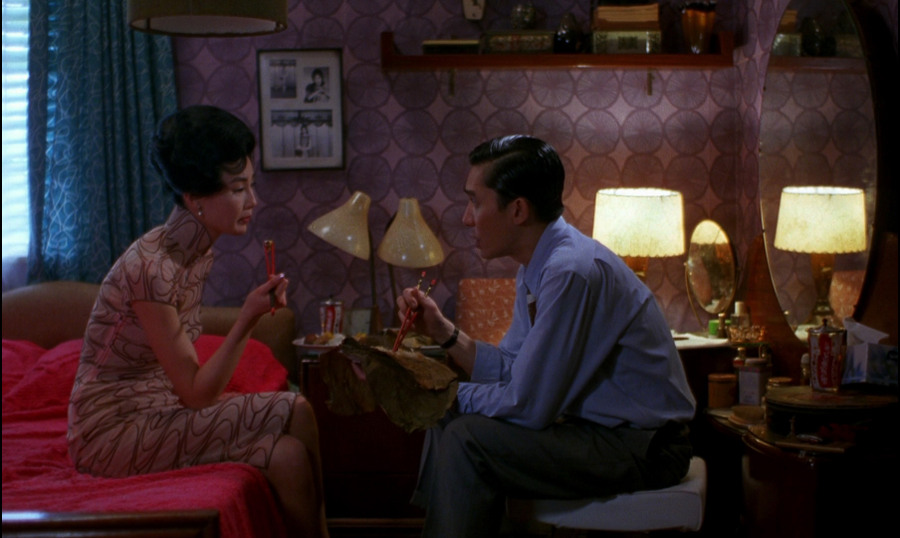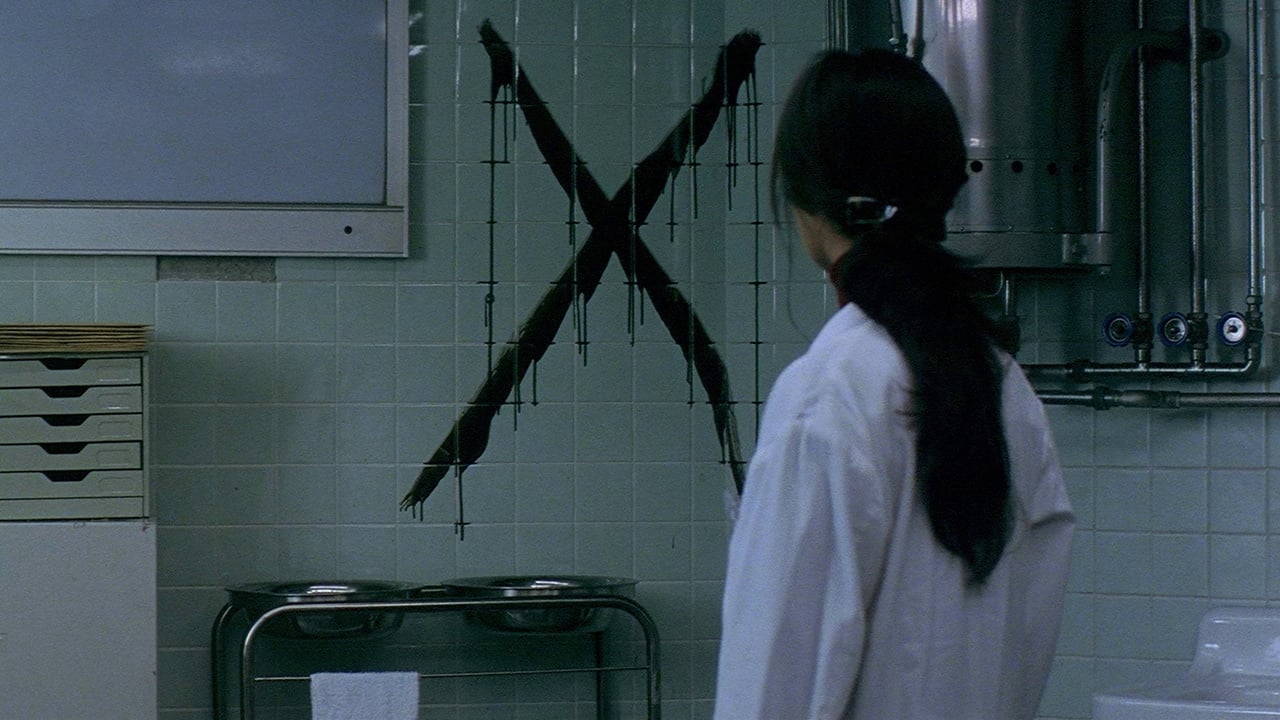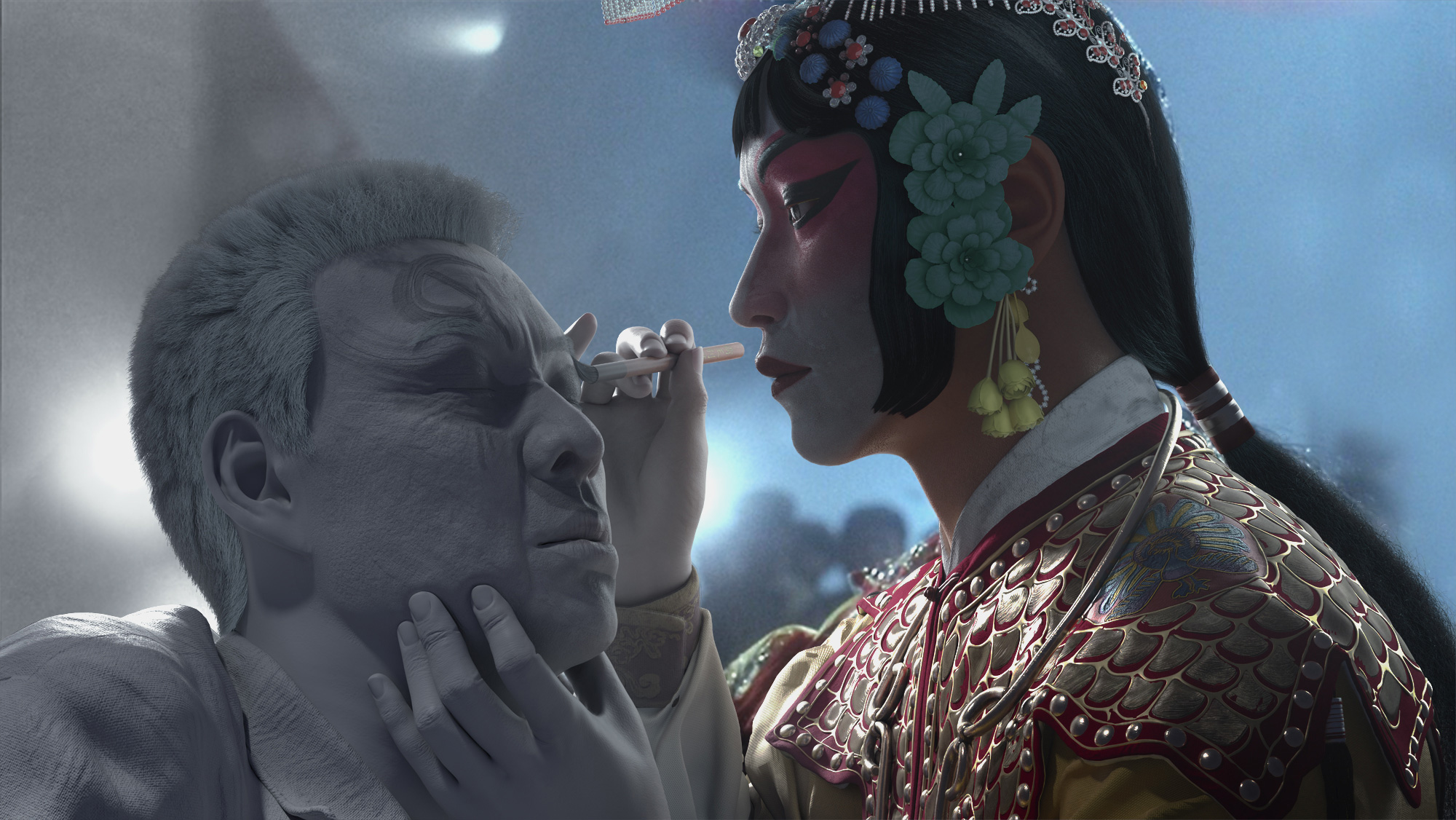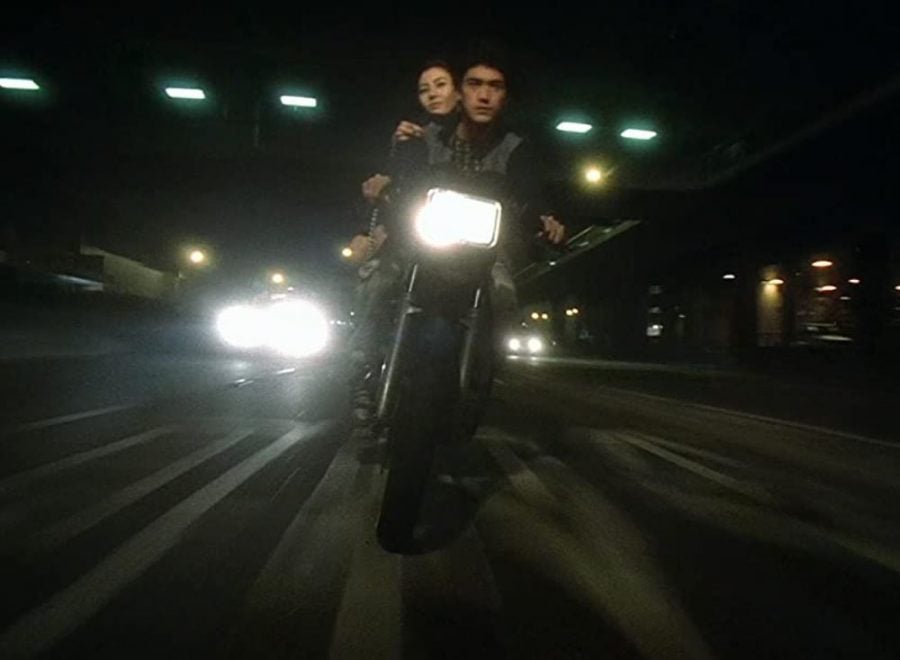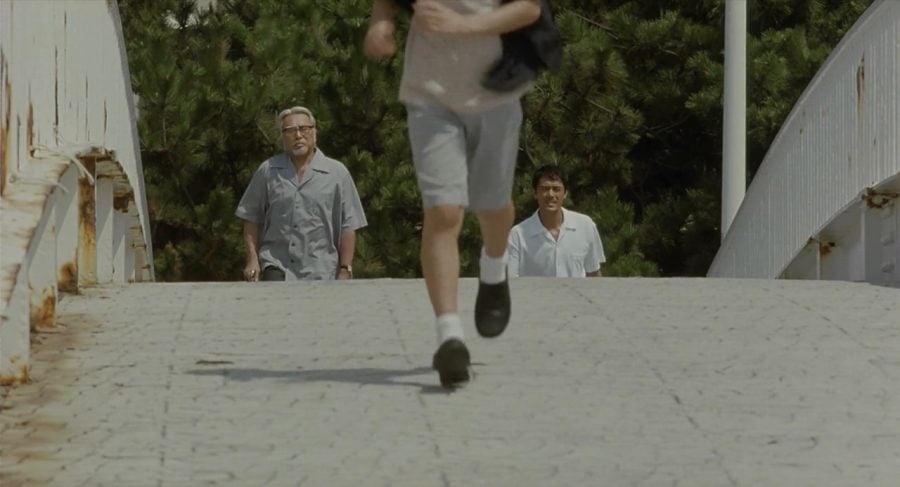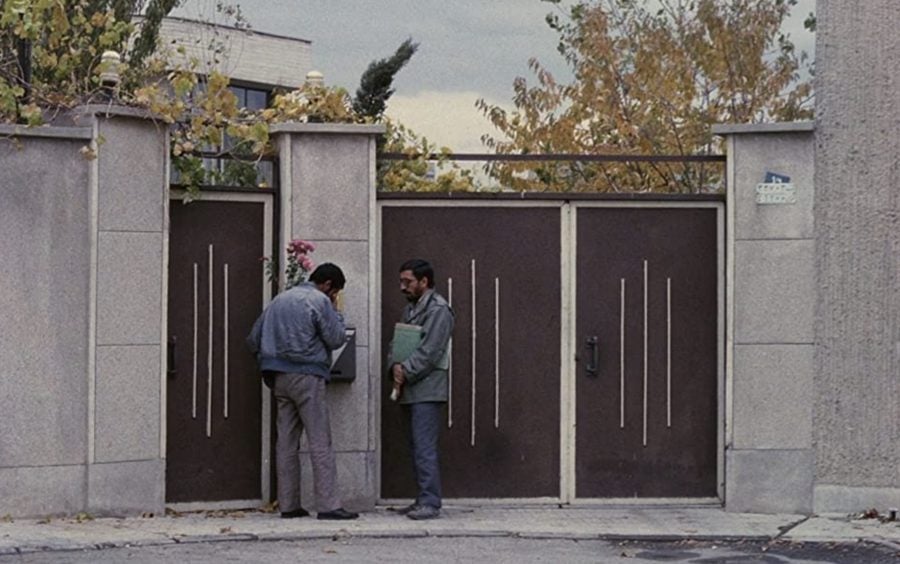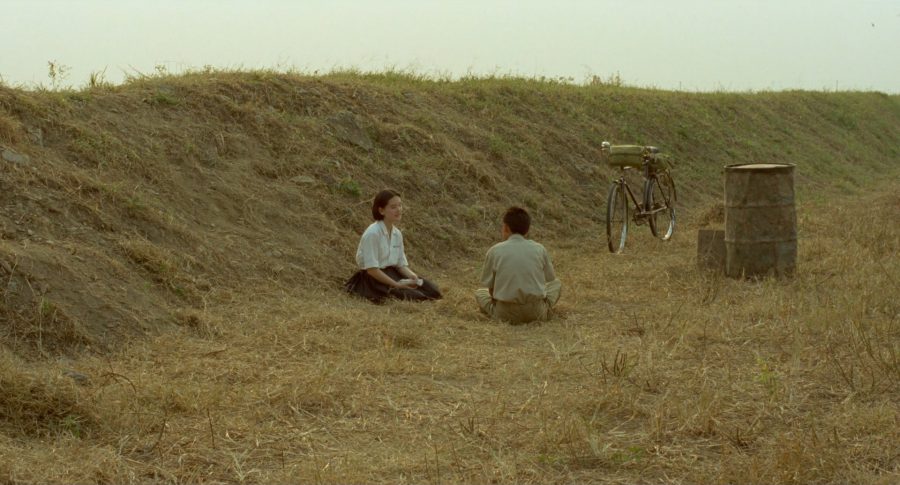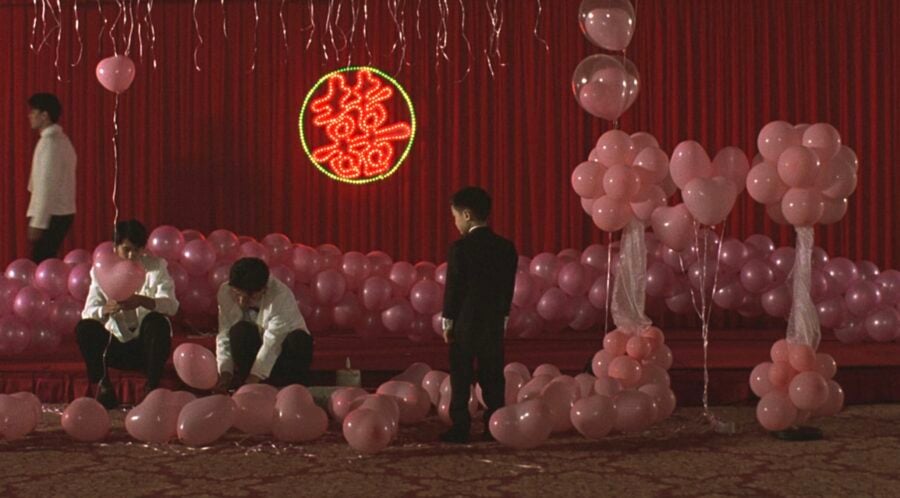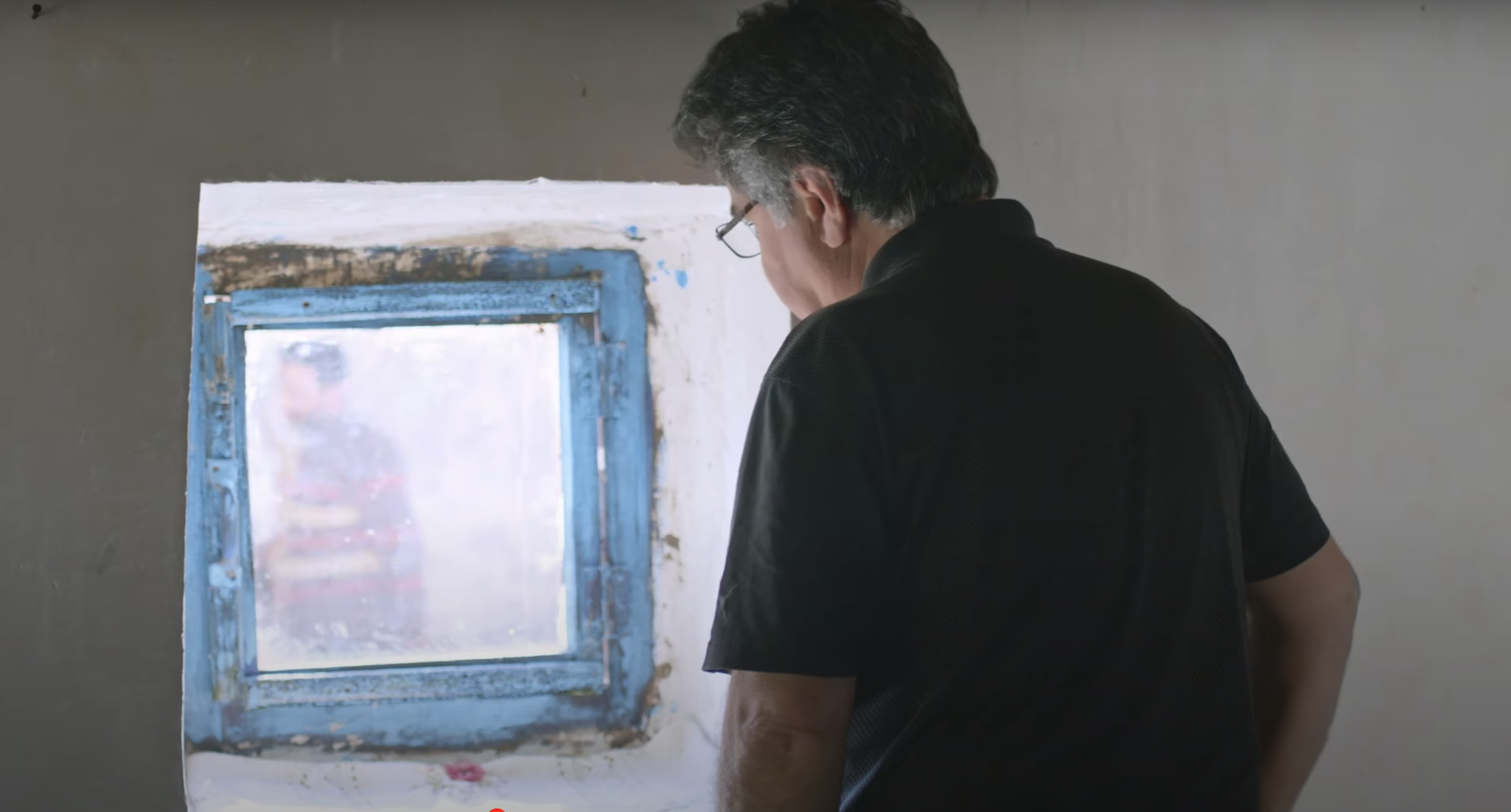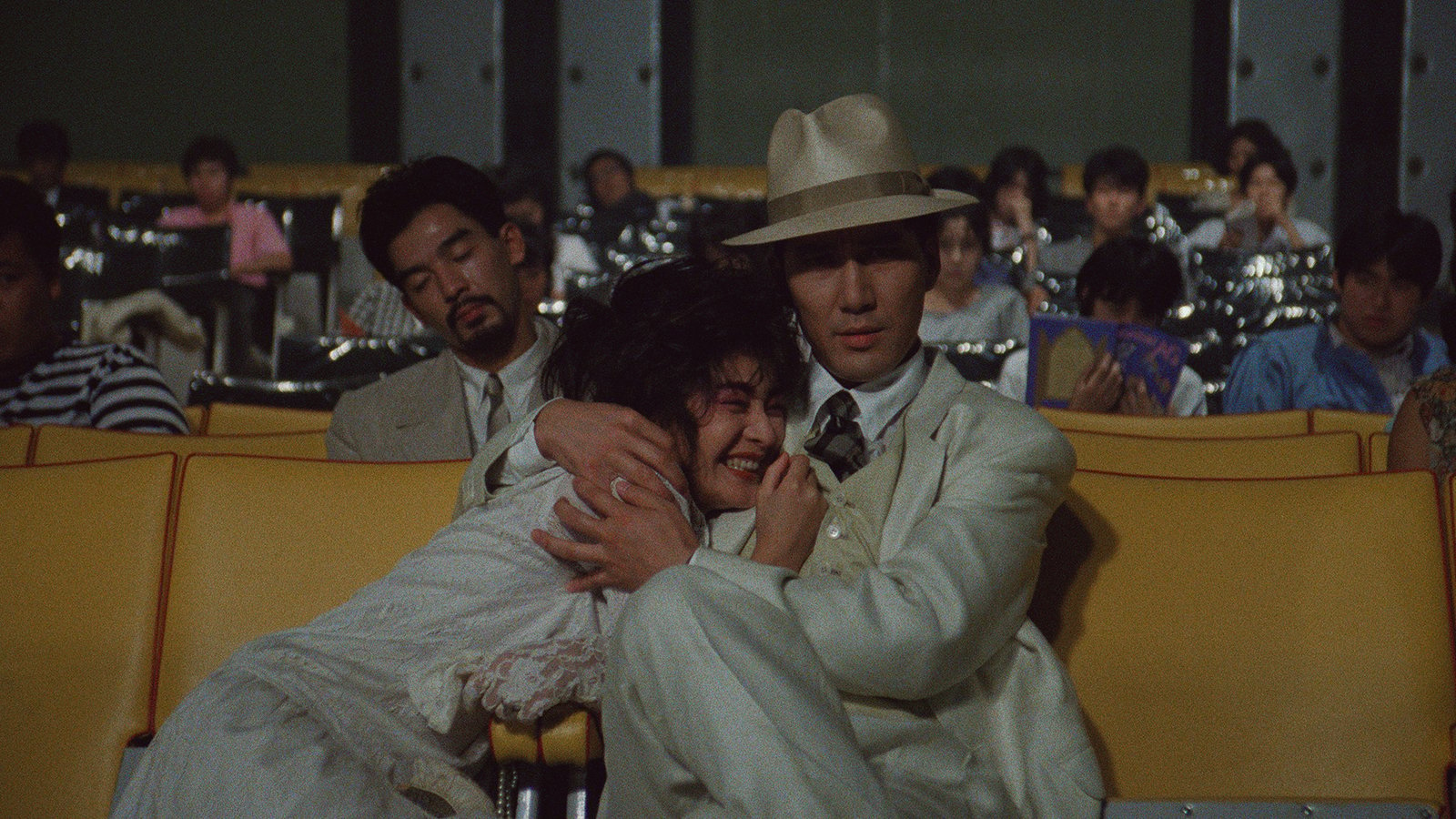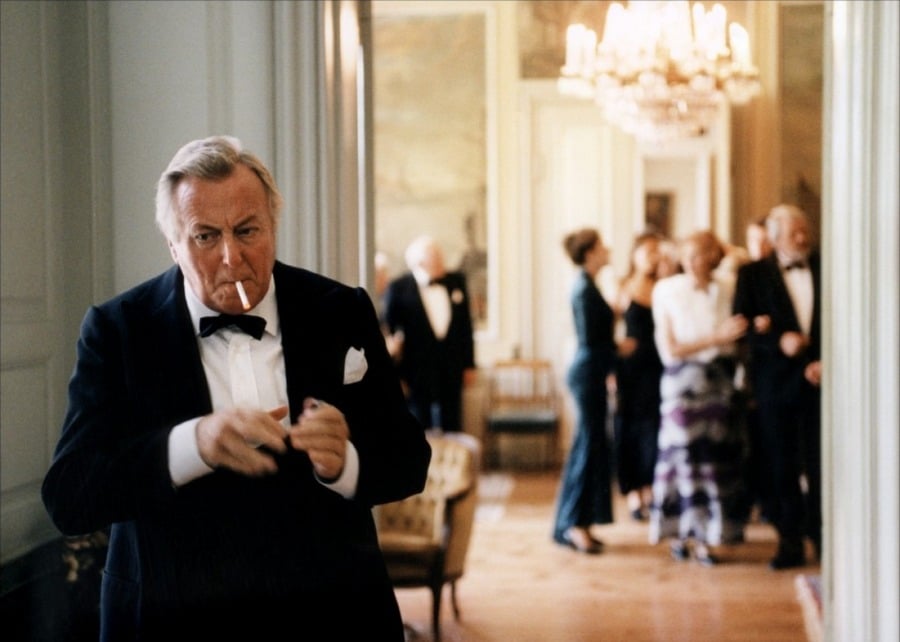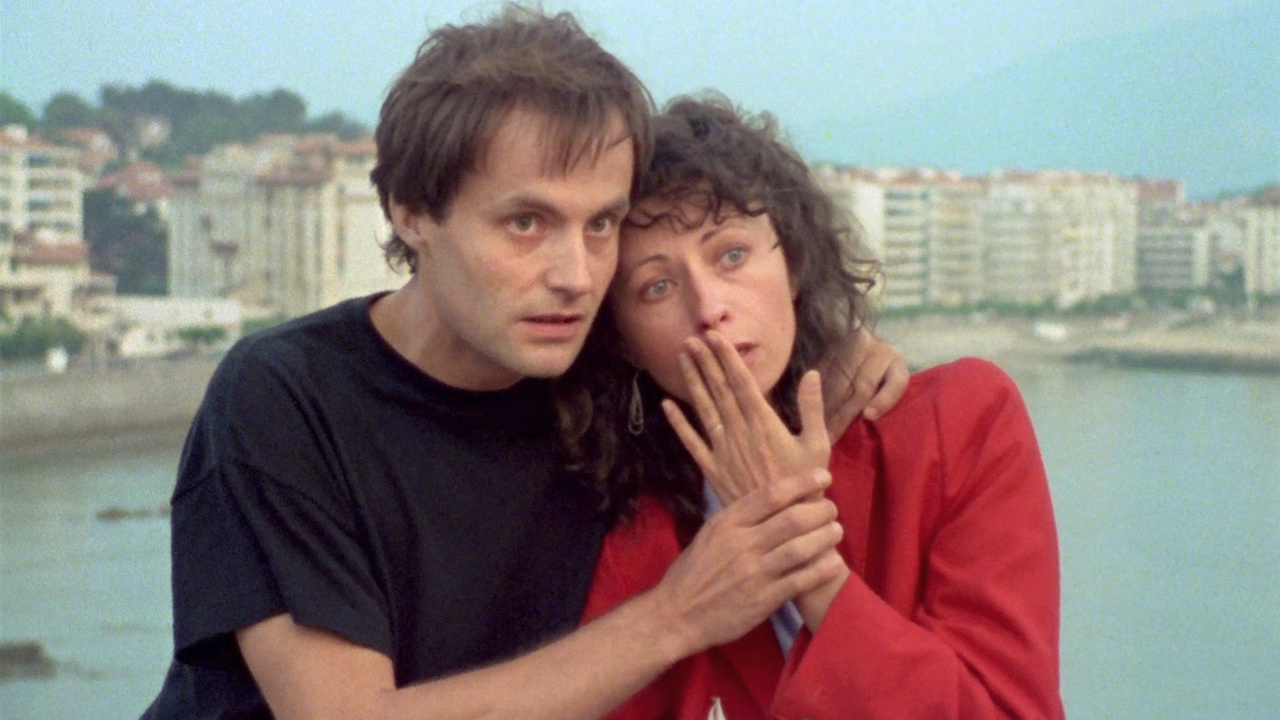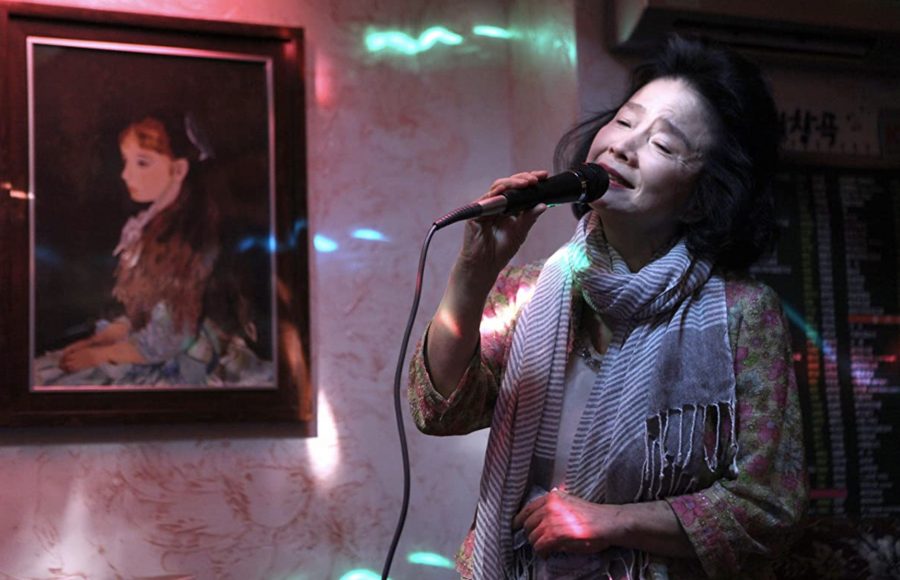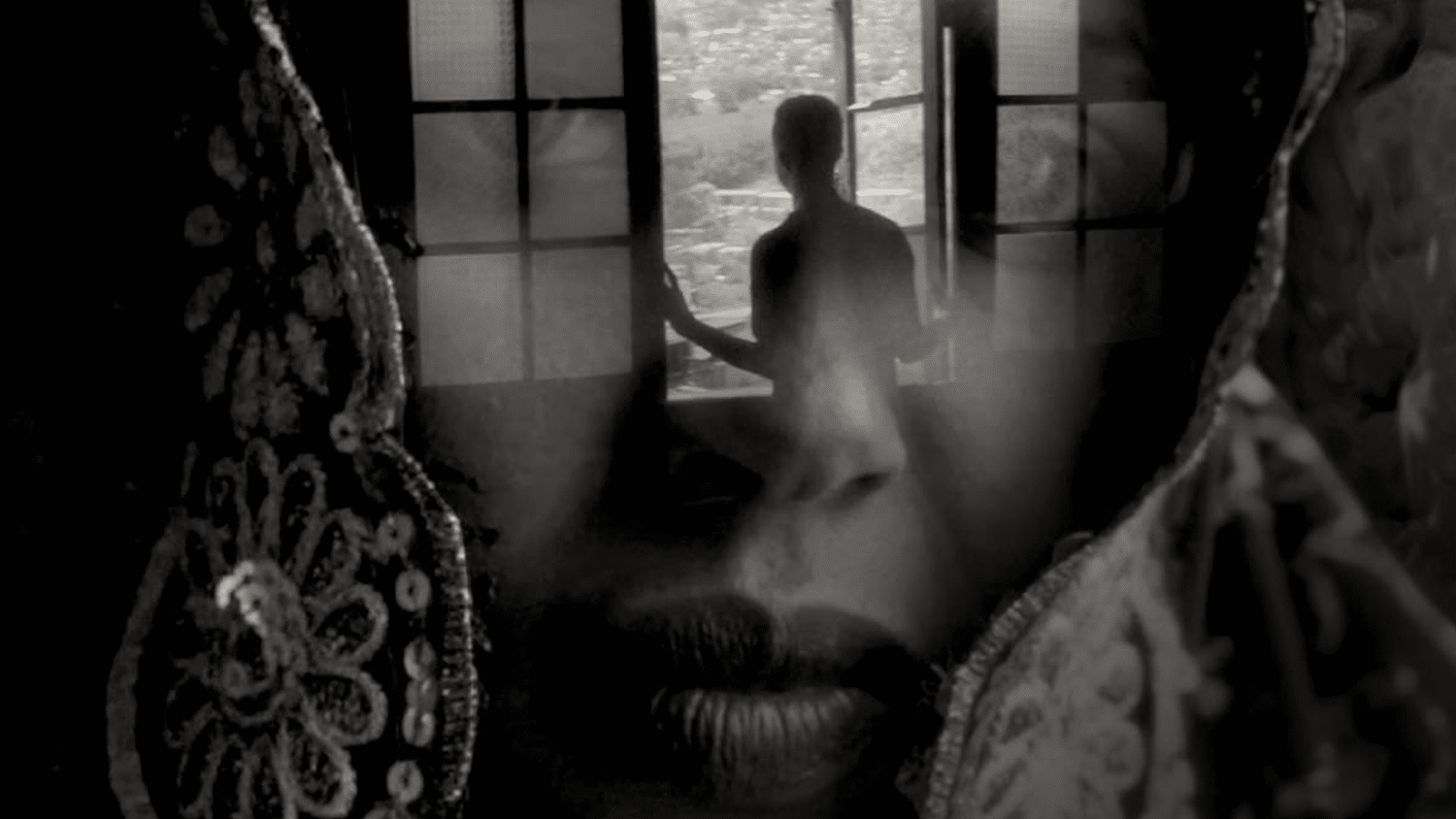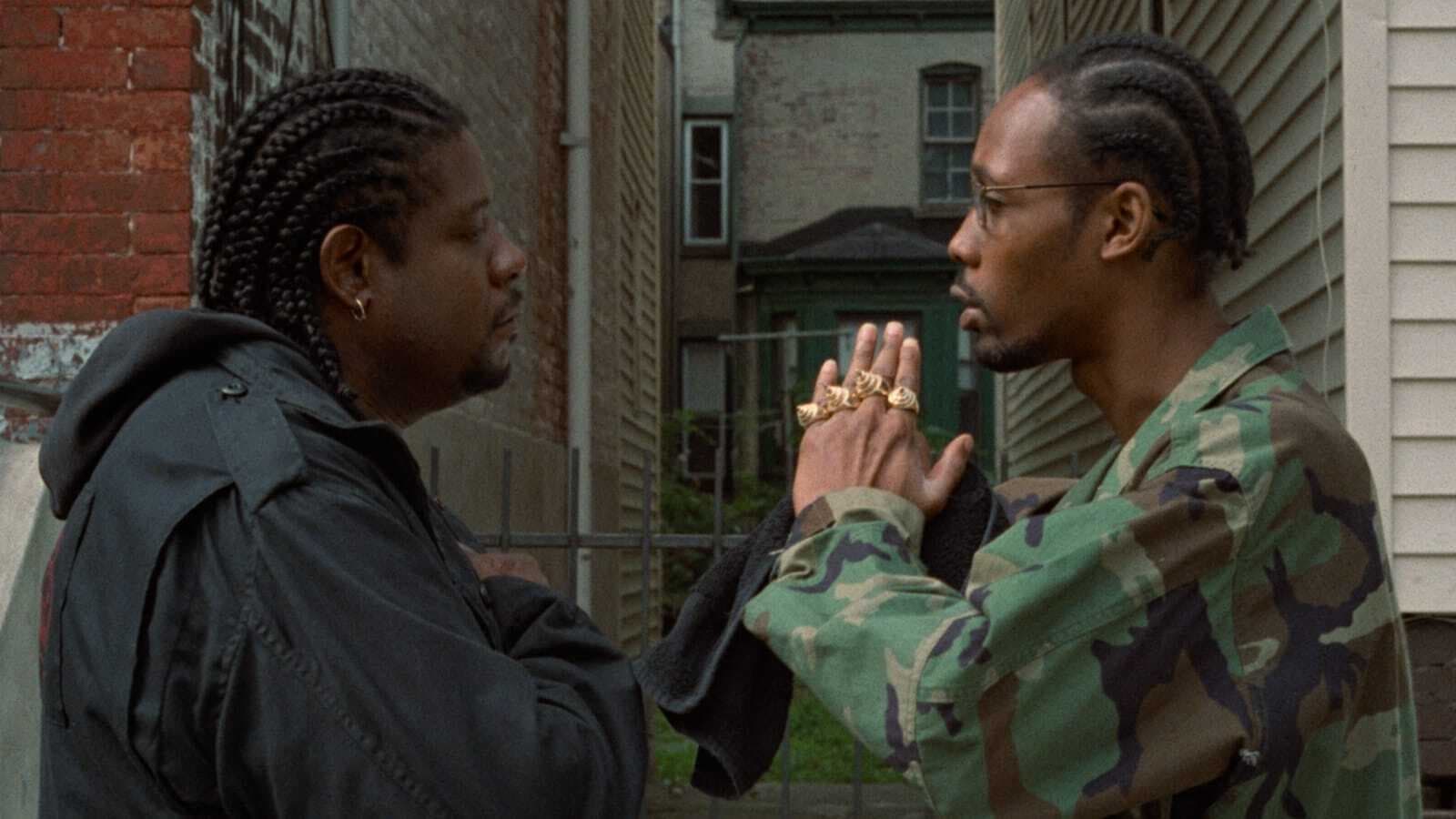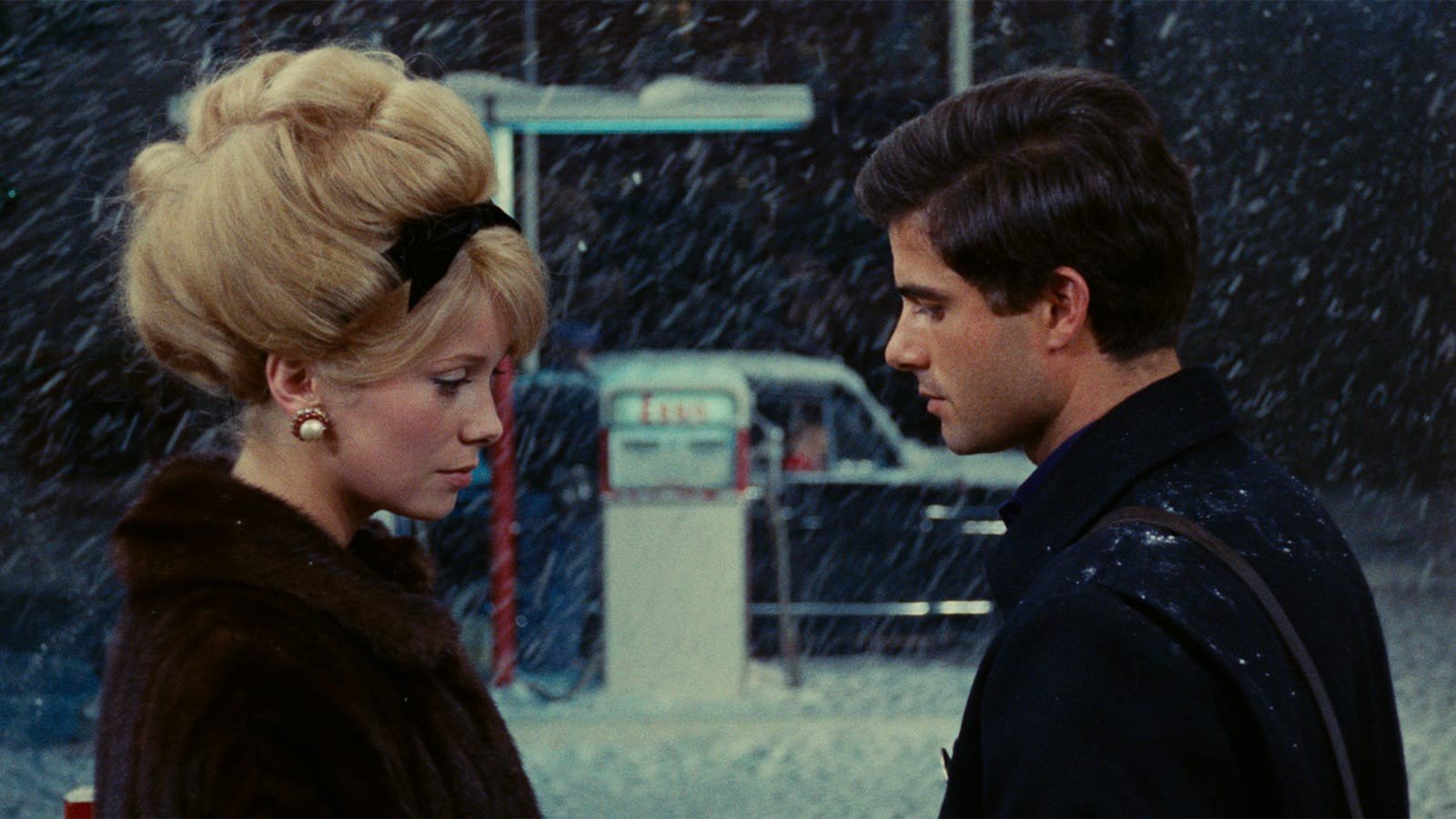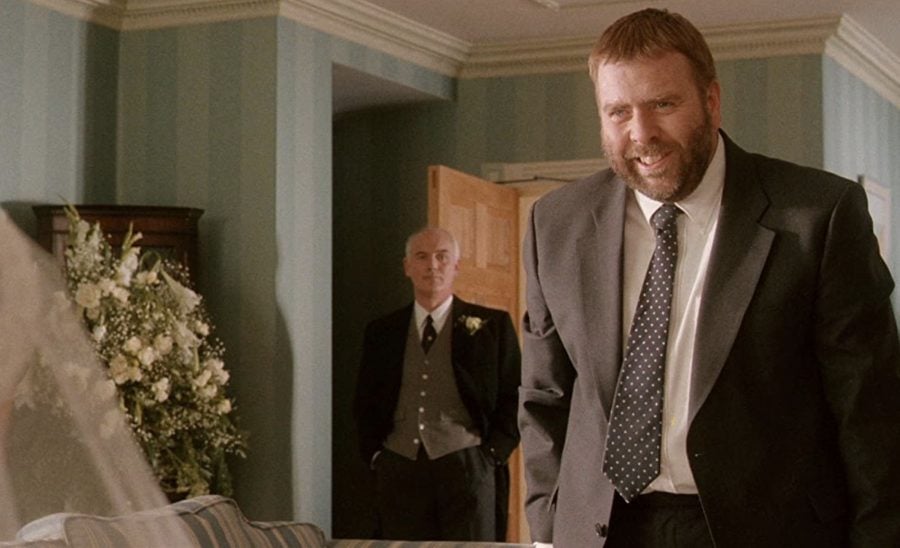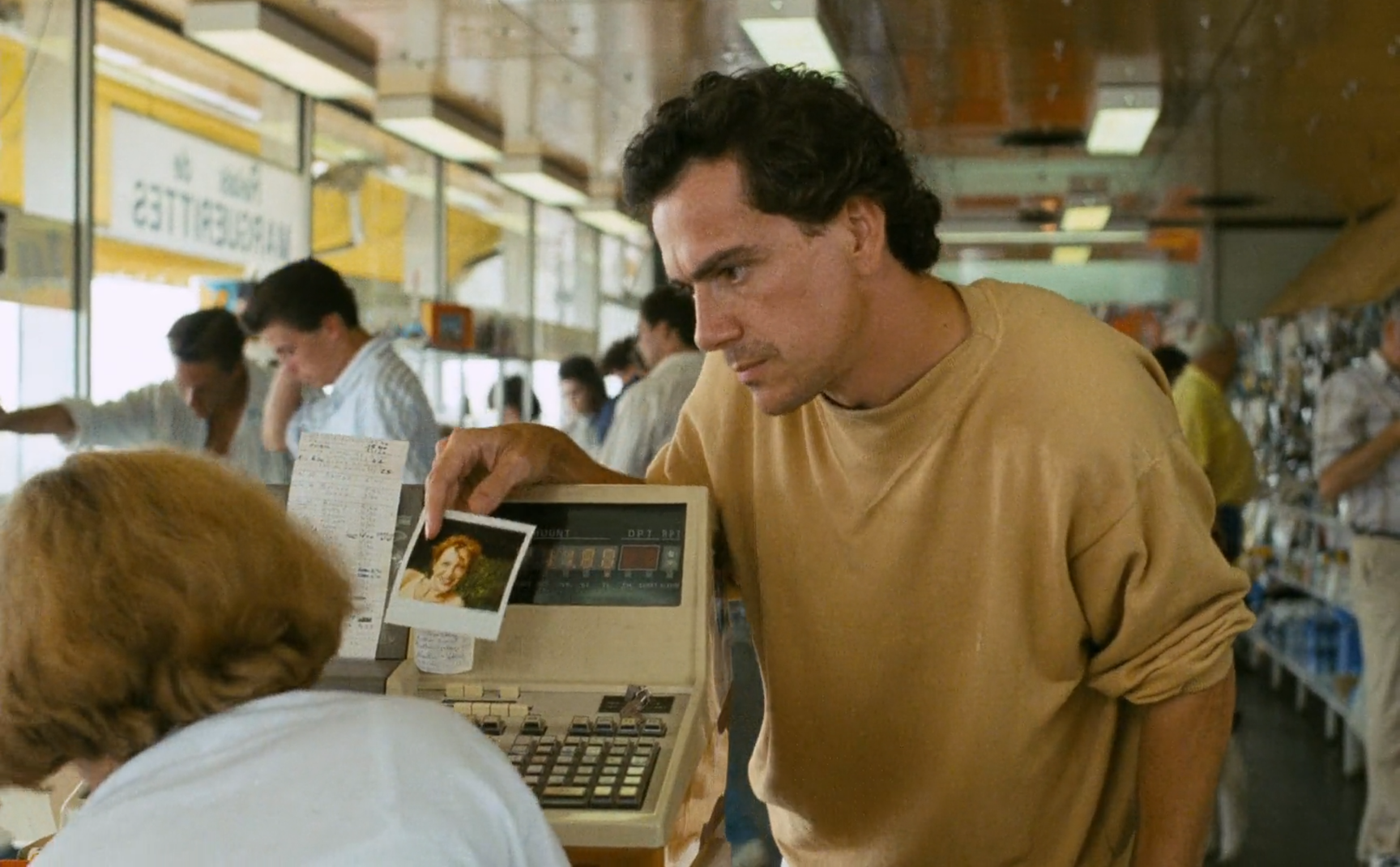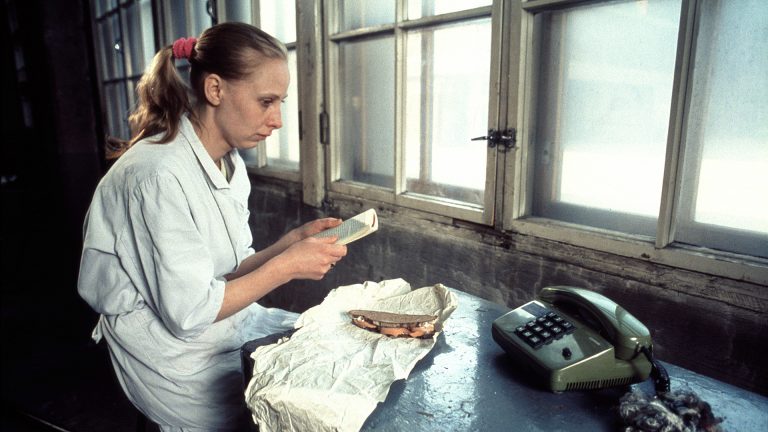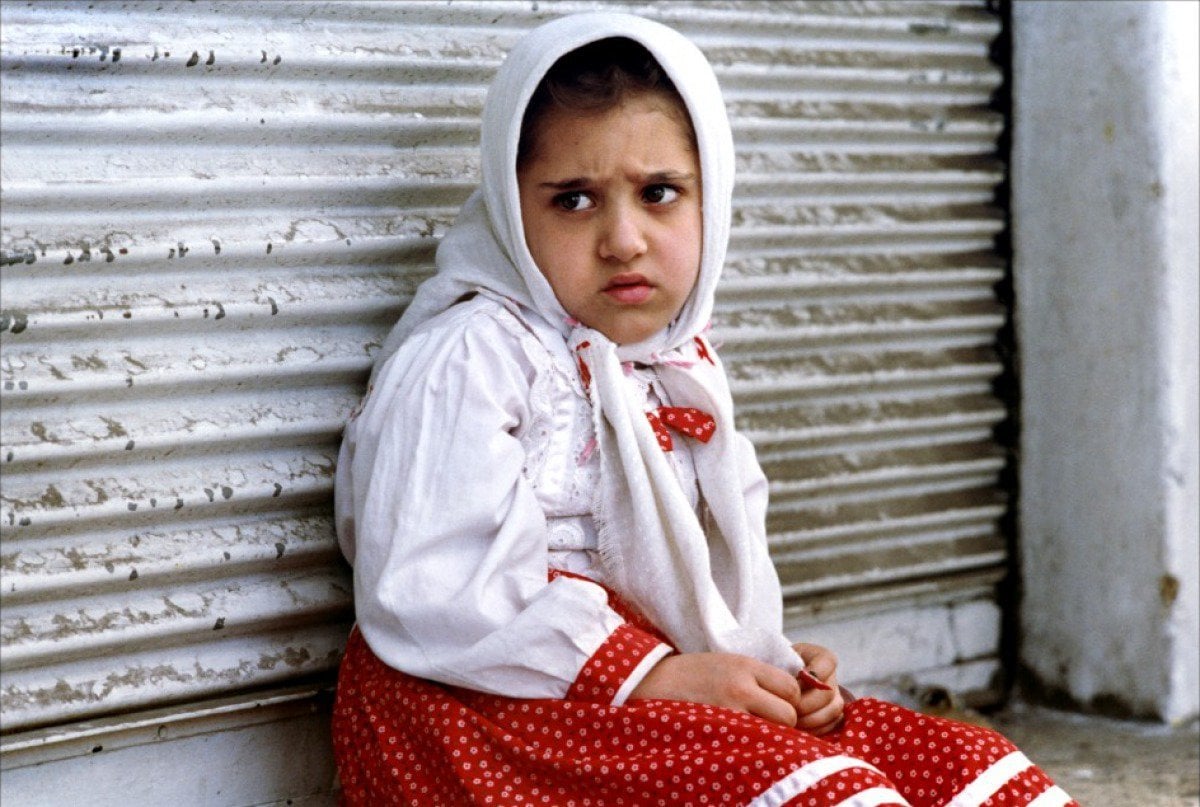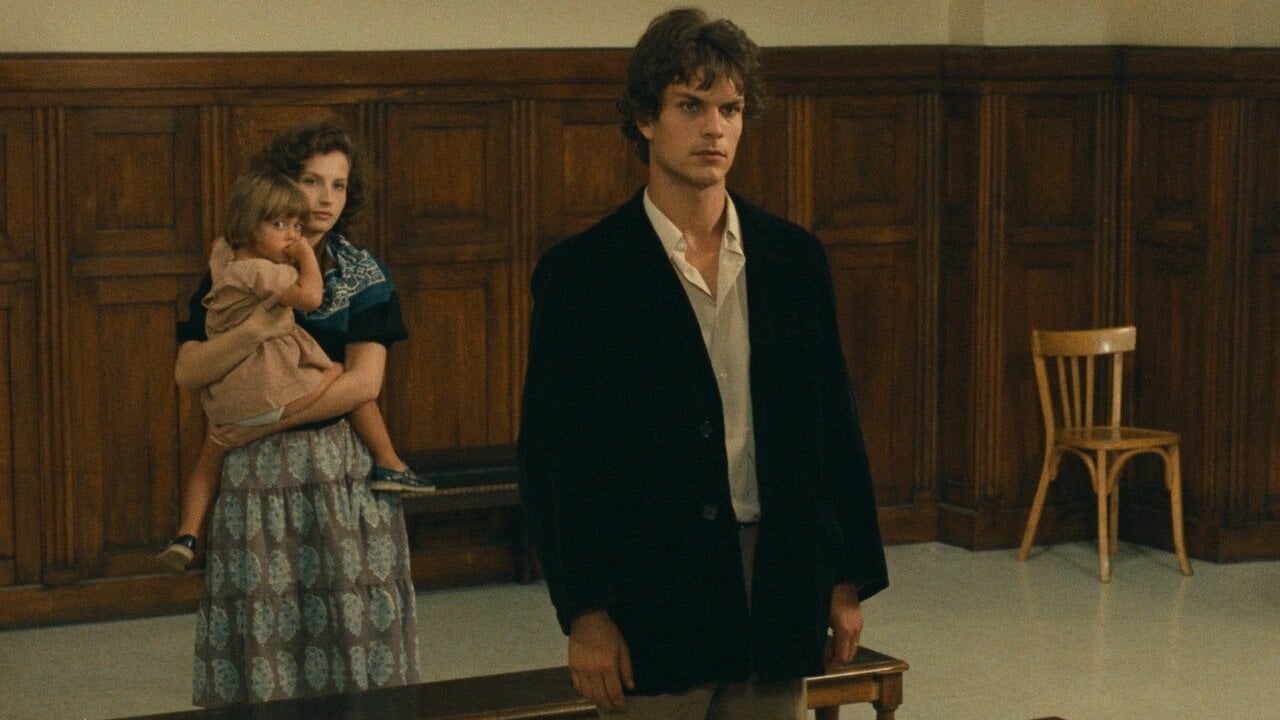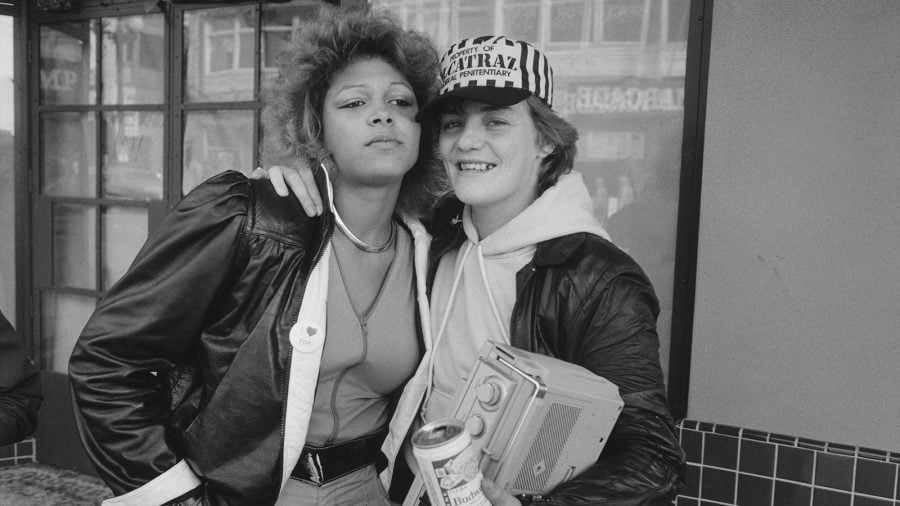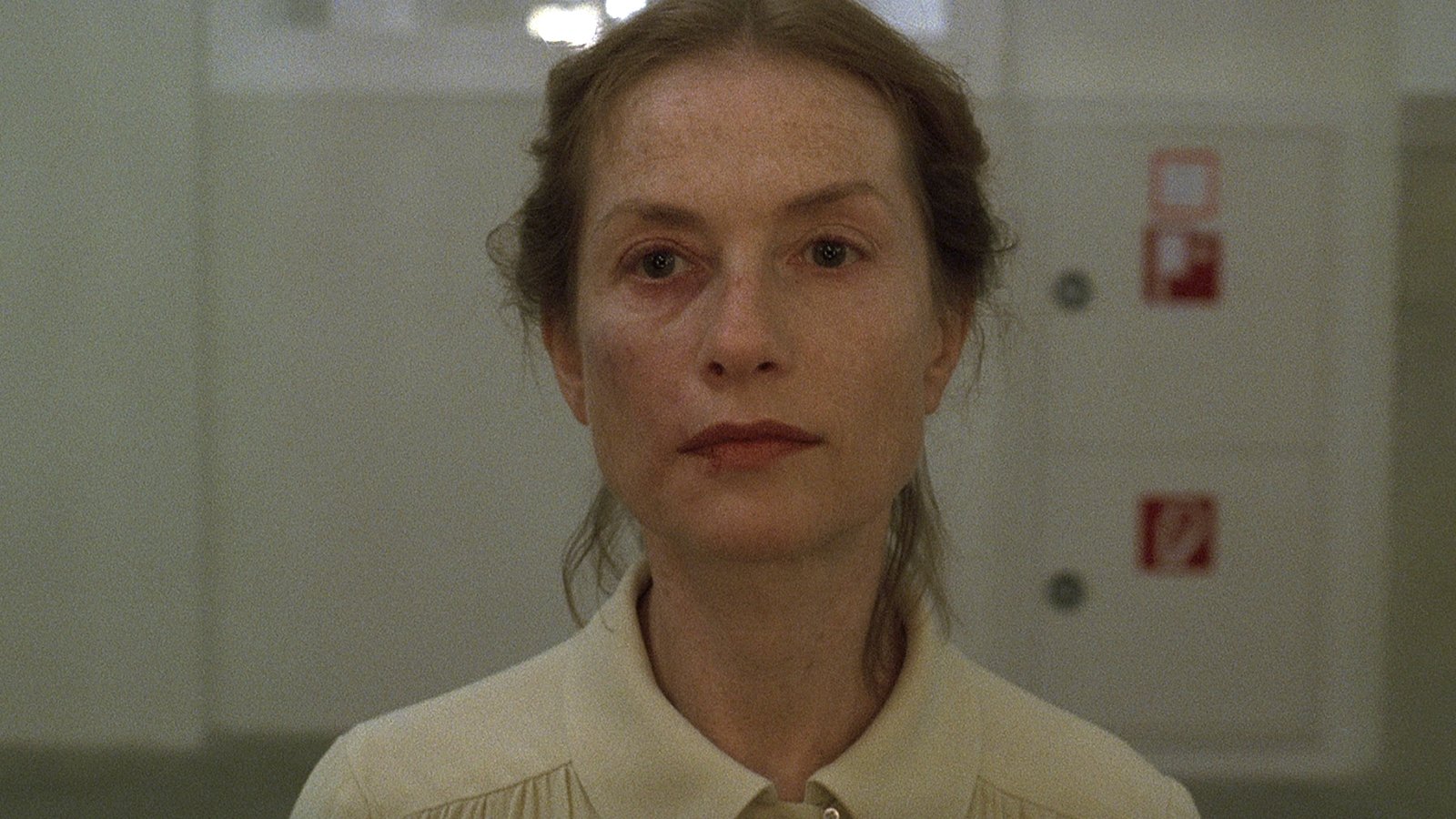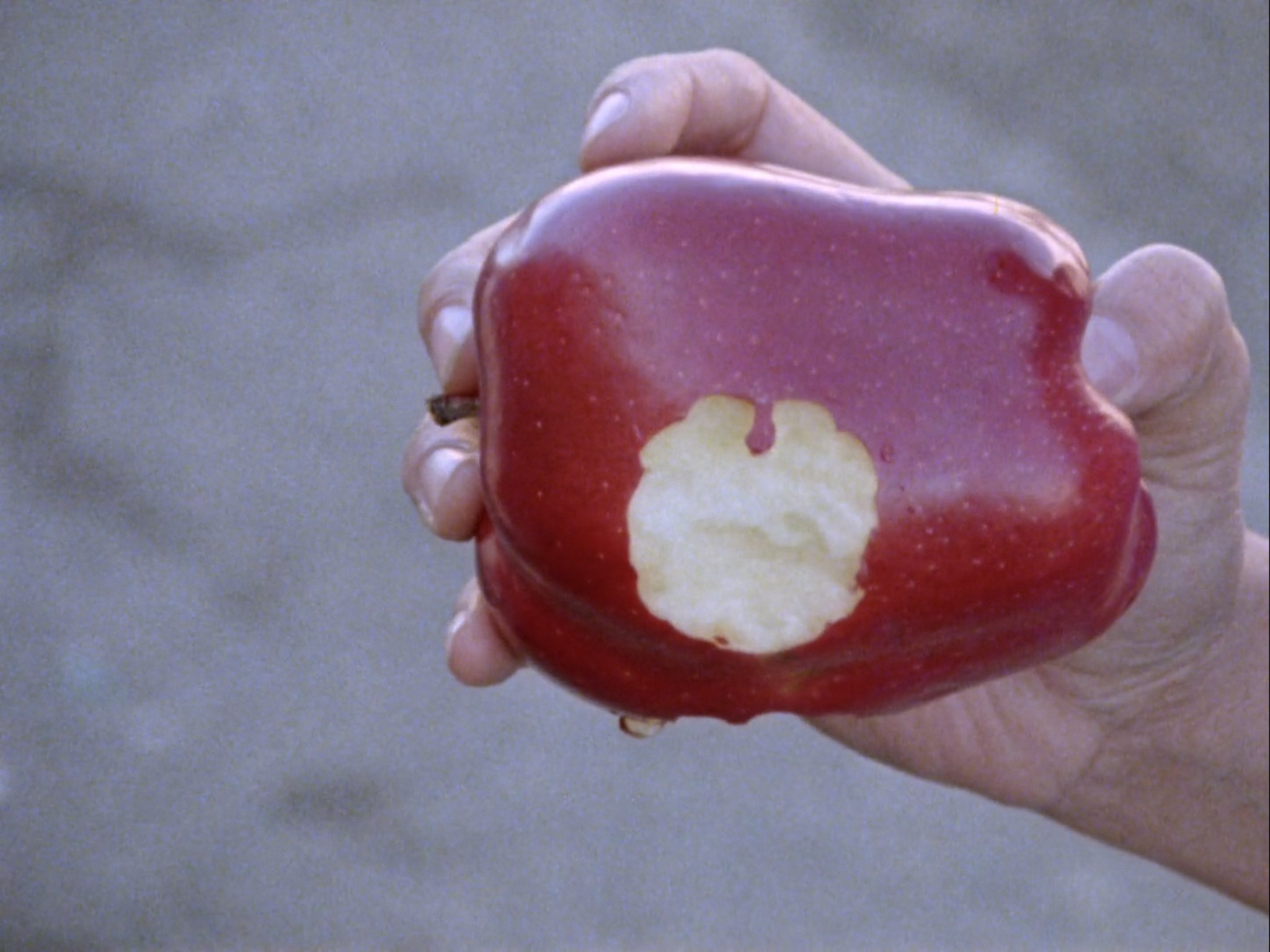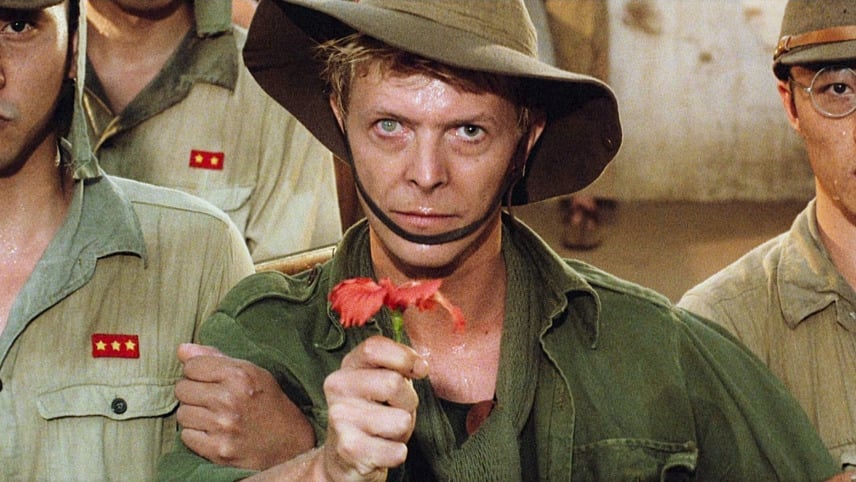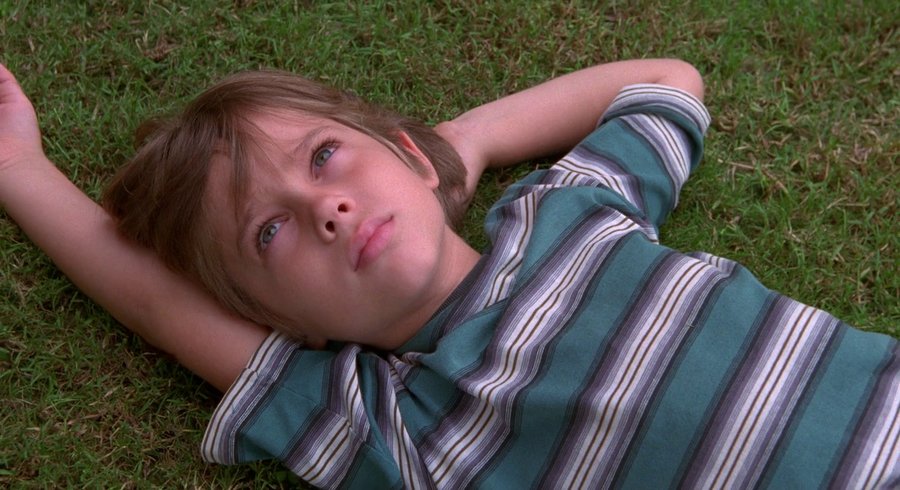30 Best Movies on The Criterion Channel Right Now
The Criterion Channel is great for watching old classics, but as a streaming platform, it’s also full of recent movies (that will hopefully one day become classics). This list is for the best movies you can stream on Criterion that are recent (mostly released in the 2010s with one or two 90s movies).
The Great Beauty is a film of superlatives! Originally titled La Grande Bellezza, this movie by Italian star director Paolo Sorrentino is so replete with lush, opulent cinematography, it sometimes borders on sensory overload. Having won Best Foreign Language Film at the 86th Academy Awards, as well as the Golden Globe, and the BAFTA award in the same category, The Great Beauty is also a critics’ darling and an award-show sweeper – in addition to being hailed as Paolo Sorrentino’s greatest work to date.
Essentially a tragicomedy, it is both a study and a celebration of the hedonism and decadence of its main protagonist – the bon-vivant and modern-day Roman socialite Jep Gambardella (played by an electrifying Toni Servillo). Instead of honing the craft of writing, Gambardella at some point decides to become the self-proclaimed “king of high life” of Rome. After his 65th birthday, he experiences a shock that changes him for good, prompting him to look past the parties and the nightclubs and to discover the sublime beauty of his hometown, the eternal city. In this way, The Great Beauty is a meditation on art, regret, and pleasure – and Sorrentino’s love letter to Rome.
Genre
Drama
Director
Paolo Sorrentino
Language
Italian, Japanese, Mandarin, Spanish
Mood
Thought-provoking, Without plot
While today’s moviegoers would likely pick Black Swan as the ballet film of choice, there is one film classic that brings the title of the best ballet film in contention. That is The Red Shoes. It first divided critics of film and ballet alike, but as time went by, the spectacular drama from Michael Powell and Emeric Pressburger deservedly garnered acclaim for the brilliant, novel ways of bridging the gap between art forms. Of course, the most obvious of these is the lush, stunning 17-minute dance sequence that first incorporated dynamic camera movement to the choreography, and captured Han Christian Andersen’s story to its essentials. But aside from just depicting the dance, The Archers reconfigured every other single aspect of film to bend toward the movement without breaking the beauty of every shot– the scoring, the casting, the production design, and the ballet-within-a-film plotline. It’s because of this that The Red Shoes garnered a legacy of being one of the best ballet films, one of the best British films, and even one of the greatest films ever made.
Genre
Drama, Romance
Director
Emeric Pressburger, Michael Powell
Language
English, French, Russian
Mood
Character-driven, Discussion-sparking, Dramatic, Emotional, Intense, Lovely, Original, Thought-provoking, Well-acted
Though the drag scene is alive and well today, Paris is Burning is an important reminder that it didn’t always used to be that way. Over the course of seven years, Director Jennie Livingston leads us underneath the crime-ridden streets of 80s New York, where a glittery drag subculture is flourishing, despite all odds. Leading the community are the so-called mothers, the best performers and most fashionable of them all, tasked with inspiring and caring for newcomers. Nevermind that they’re shunned by society and suffocated (sometimes literally) by hateful homophobes and racists; when there is a ball, all that matters is that they strut, dance, and put on the best damn show of their lives. What they do is art, and Livingston makes sure to exalt the craft and pride that goes into it. At the same time, intimate interviews with iconic queens like Pepper LaBeija and Willi Ninja reveal the heartbreaking nature of the community. Most, if not all, have endured some form of abuse, and many risk their lives to earn a decent living. But again, Livingston refuses to reduce them to pure tragedy; she gets them to share their wonderfully big dreams, then gets us to hope along with them that they might just come true.
Genre
Documentary
Director
Female director, Jennie Livingston
Language
English
Mood
Discussion-sparking
Called a masterpiece by many and featured on many best-of-the-21st-century lists, Director Wong Kar-wei has created a thing of singular beauty. Every frame is an artwork (painted, as it were, with help of cinematographer Christopher Doyle) in this meticulously and beautifully crafted film about the unrequited love of two people renting adjacent rooms in 1960s Hong Kong. These two people, played by Tony Leung and Maggie Cheung, struggle to stay true to their values rather than give in to their desires, while they both suspect their spouses of extramarital activities. The flawless acting, stunning visuals, and dream-like beauty of In the Mood for Love perfectly captures the melancholy of repressed emotions and unfulfilled love. The cello motif of Shigeru Umebayashi’s main theme will haunt you long after you finished watching.
Genre
Drama, Romance
Director
Wong Kar-wai
Language
Cantonese, French, Spanish
Mood
Dramatic, Lovely, Romantic
Cure is about a mad society, where both cure and sickness might be one and the same. Director Kiyoshi Kurosawa subverts the police procedural into an interrogation without definite answers, an abstract study on the evil that resides and is suppressed in every person’s heart. Unlike most horror films, Cure’s scares are left in plain sight, hypnotically mesmerizing as they are gruesome, with a sense of mundanity associated with other Japanese masters like Ozu or Kore-eda. “At the time it just seemed the right thing to do,” a man answers when asked why he killed his wife, and it is this contradictorily calm, nonchalant demeanor that creates a feeling of unease in the film’s horror aesthetic.
Genre
Crime, Drama, Horror, Mystery, Thriller
Director
Kiyoshi Kurosawa
Language
Japanese
Mood
Challenging, Dark, Gripping, Intense, Smart, Thought-provoking
Thirty years after its release, the first ever Chinese language Palme d’Or winner has finally been made more accessible through Criterion Channel through its uncut 4K restoration. Farewell My Concubine is one of those classical epics that is considered essential viewing, but even with its near 3 hour runtime, the film still holds up all these decades later with its startlingly heartrending love story and depiction of the tumultuous shifts of 20th century China. Director Chen Kaige masterfully balances both sides, tapping into the pain Dieyi (Leslie Chung) chooses as he clings to the classical opera, the very art form that allows him a sliver of his unrequited love to be realized, but that is also limited depending on whichever government is in charge at the moment. It’s possibly one of the most beautiful and most miserable films ever made.
Genre
Drama
Director
Chen Kaige
Language
Mandarin
Mood
Challenging, Character-driven, Depressing, Dramatic, Emotional, Intense, Slow, Thought-provoking, Well-acted
Wong Kar-wai’s dreamlike masterpiece is a perfect portrayal of the wilderness of a city at night. A hitman trying to get his job done, a woman hunting the prostitute who stole her boyfriend, and a mute who loves his father’s cooking: each of the characters in Fallen Angels is eccentric and interesting in their own way. Along the watch, you may find yourself overwhelmed by all the events taking place as each character fights to stay alive and satisfy their desire, but this is exactly where the beauty lies. A hazy view of Hong Kong is the backdrop for the characters’ riveting stories, blending loneliness, lust, as well as missed opportunities. Fallen Angels is a remarkably balanced film that not only exposes the coldness of people in the city, but also their warmth.
Genre
Action, Crime, Drama, Romance
Director
Kar-Wai Wong, Wong Kar-wai
Language
Cantonese, English, Japanese, Mandarin
Koreeda is a master of the tender gaze. He deals so softly, elegantly, and emphatically with the characters in his films, it will make you feel like you’re watching life itself in all its complex, emotional splendor. Maybe this is particularly true for this movie because it has been inspired by Koreeda’s memories of his own childhood and the passing of his mother. Still Walking is a quietly toned movie spanning a period of 24 hours in the life of the Yokoyama family, as they gather to commemorate the passing of their eldest son. At the center of the story is the father, an emotionally distant man who commands respect both from his family and community. Opposite from him sits the other son, the black sheep, who seeks his father’s validation. Directed, written, and edited by Koreeda, this dynamic is one of many in this slice-of-life movie about how families deal with loss. And, however distant the culture or setting in Japan may seem to the outsider, you’re bound to recognize either yourself or your family among the tender scenes of this masterful drama.
Genre
Drama, Family
Director
Hirokazu Kore-eda, Hirokazu Koreeda
Language
Japanese
Mood
Character-driven, Discussion-sparking, Slice-of-Life, Sunday, Without plot
The apex of Abbas Kiarostami’s monumental filmography, Close-Up is a testament to the late directors’ ingenuity and humanism. Kiarostami documents the real-life trial of a man who impersonated fellow Iranian filmmaker Mohsen Makhmalbaf, and ingratiated himself to a family believing him to be the real deal. The courtroom drama and interviews are fascinating enough, but Kiarostami takes it one step further by having everyone involved reenact the events as they happened.
The result is an unparalleled piece of filmmaking that blurs the boundaries between documentary and narrative while posing vital questions about the exclusivity of cinema and the storytelling process. Despite its sophisticated constructions, Kiarostami’s direction is lucid and direct as it builds to a passionate and unforgettable conclusion.
Genre
Crime, Documentary, Drama
Director
Abbas Kiarostami
Language
Azerbaijani, Persian
At nearly four hours long, A Brighter Summer Day is a sprawling, beautifully composed film that follows young Xiao Si’r and his eventual entanglements in nearly everything, from love to youth gangs to politics. While parts of the story, particularly its bone-chilling climax, are based on true events, the film is largely reconstructed from Edward Yang’s memories of the era he grew up in. As a result, the visuals feel crisp and true, tinged with just the right amount of nostalgia to balance the grittiness of its realism.
As coming-of-age films go, A Brighter Summer Day is certainly more on the tragic side. It’s also seminal in its specificity and depth—an absolute must-watch for any and all filmgoers.
Genre
Crime, Drama, Romance
Director
Edward Yang
Language
English, Mandarin
Mood
Character-driven, Slice-of-Life, Sunday, True-story-based
Edward Yang’s masterful and lush Yi Yi follows the lives of the Jian family and their respective, middle-class worries. The father agonizes over a business deal and, at the back of his mind, an old flame. The mother struggles with emptiness, the daughter with sensuality, and the son with his burgeoning artistry. In the periphery are other family members trying to get by as best they can despite having no certain future to look forward to. The story, which is bookended with life and death, is punctuated with these lingering anxieties but also, crucially, with moments of potent, profound joys.
The premise seems simple, but Yang weaves a breathtaking epic out of the mundane. The mise-en-scene is immersive, the dialogue delicate, and the direction effectively real. The understated elegance of each piece coming together to build a rich whole is what makes YiYi Yang’s legacy to the world of cinema.
Genre
Drama, Family, Romance
Director
Edward Yang
Language
English, Japanese, Mandarin
Mood
Slice-of-Life
The Iranian director Jafar Panahi has faced constant persecution from his country’s government for over a decade, for his career of sharply political films speaking truth to power. In fact, No Bears—which was shot in secret, in defiance of the government banning him from filmmaking for 20 years—had its initial festival run in 2022 while Panahi was in prison. Evidence of Panahi’s drive to keep making his movies, no matter what, are clear in this film’s limited resources and occasionally inconsistent video quality. But even those obstacles can’t get in the way of his vaulting ambition.
No Bears operates on several different layers that all express Panahi’s growing frustration with—but also his commitment to—making art that only ever seems to put himself and other people in harm’s way. At its base level, this is a suspenseful small-town thriller, as an exiled Jafar Panahi (playing himself) tries to evade suspicion from the villagers around him. At the same time, Jafar is struggling to direct a film remotely, which creates a strain on his production crew. On top of that, the characters in his film undergo their own drama, seeking asylum out of Turkey. All of this is edited together under a stirring screenplay written with heart, humor, and the hope that the institutions that try to scare us will never keep us in the dark forever.
Genre
Drama, Thriller
Director
Jafar Panahi
Language
Azerbaijani, Persian, Portuguese, Turkish
Mood
Gripping, Mind-blowing, Original, Suspenseful, Thought-provoking
While billed as a “ramen western”, Tampopo satirizes plenty of other American genres, including, but not limited to: 1) the inspirational sports film, with Tampopo’s diligent training, 2) the erotic, arthouse drama through its egg yolk kiss, 3) the witty, social comedy pointing out the absurd in dinnertime tables, and 4) the melodramatic mafia romance with its room-serviced hotel getaway. But the film doesn’t buckle under the weight of carrying all these genres– instead, the customer vignettes are all delicately plated to balance out the hearty journey of a store owner learning about ramen and the bemused, yet cohesive contemplation about food. Tampopo is one of a kind.
Genre
Comedy
Director
Jūzō Itami
Language
Japanese
Mood
Easy, Feel-Good, Funny, Heart-warming, Instructive, Original, Quirky, Slice-of-Life, Sweet, Thought-provoking, Touching, Uplifting, Warm, Weird
Whilst a classic in some circles, Festen is many things, but it’s definitely not mainstream entertainment. It was shot by Danish director, Thomas Vinterberg, who founded the Dogme 95 movement together with Lars von Trier in 1995, which sought to put the auteur director back at the heart of filmmaking, as opposed to the power of the studios or special effects. This was the first movie to come out from that group. You thought your family was messed up? Think again. This macabre, Poe-esque, gut-wrenching tale of debauchery will leave you feeling confused and slightly nauseous. This effect is exacerbated by Winterberg’s directing style and the crazy camerawork of Anthony Dod Mantle. With a highly volatile tone and a great cast, the effect Festen has on you is not easily shaken off.
Genre
Comedy, Drama
Director
Thomas Vinterberg
Language
Danish, English, German
Éric Rohmer’s The Green Ray is the kind of film that you come away from being more honest with yourself. That effect is thanks to the contagious directness of its protagonist: Delphine (Marie Rivière), a newly single young French woman whose summer vacation plans have just been unceremoniously upturned after the friend she was going away with takes off with a man instead. Now at a loose end, the indecisive Delphine meanders between her home in Paris and several gorgeous holiday spots, but that old saying — “wherever you go, there you are” — proves true. Neither the beaches of Cherbourg and Biarritz nor the lofty beauty of an Alps resort can soothe her restlessness or give her what she’s looking for, probably because she doesn’t quite know what that is herself.
Delphine’s is an achingly familiar search for anyone who’s ever felt like they’ve drifted off of life’s path, but blessedly, the conversation-driven Green Ray doesn’t leave us wallowing in that despair. That’s partly thanks to its final moments — which rank among cinema’s most stunning — but mostly because Rivière, who improvised much of her incisive dialogue, puts into words things that so many have felt but few would admit. In that sense, The Green Ray feels as much like a miracle as its last shot does.
Genre
Drama, Romance
Director
Éric Rohmer
Language
English, French, German, Spanish
Mood
Character-driven, Discussion-sparking, Thought-provoking, Well-acted
Poetry is a masterpiece from one of South Korea’s most cherished movie directors, Lee Chang-dong. The simple story follows the everyday life of a grandmother, Mija, who works as a caretaker for a living. To fill her inner emptiness, she decides to join a poetry club with other grandmothers in her neighborhood. Meanwhile, as Mija deals with her own financial and health problems, she struggles to connect with her teenage grandson — only to find out that he is keeping a dark secret. If you are familiar with Lee Chang-dong works, then you know that the movie will tug at your heartstrings. But if you aren’t, prepare to be moved.
Genre
Drama
Director
Chang-dong Lee, Lee Chang-dong
Language
Korean
Mood
Challenging, Dramatic, Long, Slice-of-Life
Though it’s without a plot, Faya Dayi nonetheless weaves a stunning, expansive narrative about khat and the people who farm it and chew its leaves for their hallucinogenic effect. The documentary seems to take place in the same hazy dreamlike stupor that khat-chewers chase: shot in luminous black and white, the film is set to a reflective rhythm that floats from folklore to contemporary stories of romantic heartbreak, migration, and oppression.
Largely featuring members of Ethiopia’s Oromo community — a marginalized ethnic group — including the farmers and workers involved in khat production, Faya Dayi is a portrait of economic hardship, emotional pain, and transcendent escape that hits straight in the chest for all the rawness and yearning it depicts. (As disembodied voice-overs put it, “people chew to get away” to the khat-induced “empty and lonely hideout where no one can ever visit you, your own dark and lonely world.”) Full of textures and images that evoke all of the senses, this is virtually a 5D movie, a hypnotic out-of-body experience that floats an astonishing expanse of ideas into your head — no talky explanations needed.
Genre
Documentary
Director
Female director, Jessica Beshir
Language
Amharic, Oromo
Mood
Original, Raw, Slice-of-Life, Thought-provoking, Without plot
Director Jim Jarmusch audaciously combined the DNA of French noir classics with that of samurai and mafia movies to produce this utterly original film. As advised by the ancient Japanese manual it often quotes, though, Jarmusch’s movie also “makes the best” out of its own generation by adding hip-hop into its wry genre blend. The results are more than the sum of their parts, especially because the film is so eccentric: no matter how au fait with its inspirations you are, you still won’t see “Forest Whitaker plays a lonely hitman who wields and whooshes his silencer pistol like a samurai sword, lovingly tends pigeons, and can’t even speak the same language as his best friend” coming.
Ghost Dog’s strangeness is never jarring, though, thanks to Whitaker’s cool, collected performance, an atmospheric score by Wu-Tang Clan’s RZA, and the cinematography’s tendency to use smooth double exposures for scene transitions. It almost feels like we’re in another world: Jarmusch zooms in on the Bushido code obsessions of Whitaker’s single-minded character and the mafiosos’ dying laws, blurring out everything else so the movie becomes a meditation on the impulse to moralize one’s misdoings by subscribing to rigid definitions of “honor.” Not an exercise in surface style, then, but a bone-deep reflective masterpiece.
Genre
Crime, Drama
Director
Jim Jarmusch
Language
English
Mood
A-list actors, Action-packed, Character-driven, Funny, Mind-blowing, Original, Quirky, Well-acted
If we were to list down the best of the best movie musicals ever made, most of the titles would probably come from the Golden Age of Hollywood. But we’d be remiss to forget that just a few years later, all the way across the pond, came The Umbrellas of Cherbourg, a French romantic musical from Jacques Demy. It’s certainly in the running for the most gorgeous musical ever made, with the bold, dreamy colors, incredible camera work, stylish costumes, and two beautiful leads front and center, but what makes Cherbourg great is the lush composition made by Michel Legrand. With the sweeping violins and the tragic lyrics of Devant le Garage, to the catchy, jazzy Scène du Garage that starts off the film, Les Parapluies de Cherbourg brings together sublime visuals and sound into one of the greatest musicals ever made.
Genre
Drama, Romance
Director
Jacques Demy
Language
French
Mood
Emotional, Lovely, Romantic, Tear-jerker, Touching, Warm
Donnie Darko is a cult film by director Richard Kelly, starring Jake Gyllenhaal. It’s about the troubled teenager Donnie who lives in a suburb and suddenly faces a person in a giant rabbit costume who tells him that the world is going to end in 28 days. If that didn’t make sense to you, don’t worry – it’s not about making sense. The film is a gorgeous exploration of a bizarre chain of events, a deep rabbit-hole of meaning and expression, fate and acceptance that practically begs for a second, third, or fourth watching.
Genre
Drama, Fantasy, Mystery, Romance
Director
Richard Kelly
Language
English
Mood
Challenging, Dark, Original, Suspenseful
A woman yearns to find her biological mother, another woman struggles with infertility, a third wants to connect with her rebellious daughter. Director Mike Leigh has the prowess to seamlessly weave these stories together, and part of the joy is knowing, that like clockwork, these narratives are set on a spectacular collision course.
As melancholy as it is optimistic and as funny as it is tragic, Secrets & Lies is a perfect example of Leigh’s oeuvre and earned him a Cannes’ Palme d’Or. The film features a full cast of his regulars with the fantastic addition of Marianne Jean Baptiste as Hortense – the woman who sets the wheels of the film in motion.
Genre
Drama
Director
Mike Leigh
Language
English, Greek
Mood
Emotional, Grown-up Comedy, Touching, Well-acted
Fear of abandonment is at the heart of The Vanishing. Lovers Rex and Saskia are separated on their way to France after the latter vanishes without a trace. For the next three years, Rex dedicates his life to finding out what happened to Saskia in whatever way possible, endangering his own safety in the process. George Sluizer’s chilling psychological thriller shows the evils that curiosity and obsession can bring, and is a uniquely perverse look at the ugly side of truth-seeking.
Genre
Drama, Mystery, Thriller
Director
George Sluizer
Language
Dutch, English, French
Mood
Dark, Depressing, Original
With its 69-minute runtime, ultra-minimalist approach to camera movement, and dialogue so sparse it could fit onto a single page, the first word that comes to mind when describing The Match Factory Girl is “lean.” The second word is “bleak”: for most of the film’s slight duration, we watch as the lonely titular character (Iris, played by Kati Outinen) passively endures a relentless barrage of cruelties, whether from her coldly detached parents, callous love interest, or simply fate itself.
And yet, these words — apt descriptors of the film as they are — only capture part of what makes The Match Factory Girl such a magnetic and unforgettable watch. When a late twist sees the film swerve into even darker territory, director Aki Kaurismäki’s twin approaches fuse into one that’s greater than the sum of its parts. Rendered in his characteristic deadpan style, the shocking event becomes sardonically funny — a gutsy move that only a real master of tone, as Kaurismäki is, could pull off.
Genre
Comedy, Drama
Director
Aki Kaurismäki, Aki Kaurismäki
Language
Finnish
Mood
Dark, Quirky
There’s a universe of hard-hitting emotion hiding in Jafar Panahi’s deceptively simple debut feature, which follows a seven-year-old girl’s attempts to buy a goldfish before Nowruz, the Persian New Year, dawns. From start to finish, her shopping trip only takes 80-something minutes, and all of the action is confined to a couple of Tehran’s streets — but, because we experience The White Balloon in real-time through determined young Raziah’s (Aida Mohammadkhani) perspective, her simple quest is transformed into a perilous and profoundly emotional odyssey for audiences. Every emotion — from fear to wonder — is magnified through Raziah’s eyes, so much so that an unfortunately timed gust of wind comes to feel like a punch in the gut, and the sight of a fluttering banknote a euphoric miracle. Co-written by master of the Iranian New Wave Abbas Kiarostami, The White Balloon wrings expansive humanism out of its tiny canvas.
Genre
Drama
Director
Jafar Panahi
Language
Persian
Mood
Emotional, Gripping, Heart-warming, Slice-of-Life, Sunday, Touching, Well-acted
With his final film, octogenarian master filmmaker Robert Bresson found the violent, chilling truth in that old cliché, “money is the root of all evil.” L’Argent extends the simplicity of its title (literally, “Money”) into the fabric of the film, using an extremely bare style to track the devastating domino effect that a childish ruse has on one man’s life. When a shopkeeper realizes two schoolboys swindled him out of 500 francs with a counterfeit note, he decides to pass the problem on by paying delivery man Yvon (Christian Patey) with the false note. But when Yvon tries to pay for his lunch with the money, the police are called and his life unravels.
This is just the start of L’Argent’s clinical exploration of the meanness and littleness of man’s greedy spirit. Yvon’s downfall is chronicled with matter-of-fact coldness: everything onscreen is minimal, from the precise cinematography and frugal editing to the non-professional actors’ expressionlessness. This detached style encourages us to absorb all the bitter emotion of the story, which feels — in such an economical format as this — like a moral tale as old as time, but no less cutting.
Genre
Crime, Drama
Director
Robert Bresson
Language
French, Latin
Mood
Intense, Raw, Slow, Thought-provoking
Martin Bell documents the lives of youth living in the streets of Seattle in the early eighties with profound empathy. It’s a type of filmmaking that doesn’t judge or condescend, but seeks to capture the humanity of its subjects. The result is a film bursting with life and laughter, and although tragedy lurks around every corner it isn’t over-sentimentalized or exploited, taking a backseat to the compassionate depiction of everyday moments.
The audience is left to its own devices to pull together the extent to which these youth have been failed by a broken safety-net and the expired promise of an American dream. These ideas rise to the surface naturally and serve as a testament to the power of the documentary form when it’s loosened from the grip of mawkish narrators and sugary moralizing.
Genre
Documentary
Director
Martin Bell
Language
English
Mood
Mind-blowing, Sunday, Thought-provoking
Based on the Austrian novel, The Piano Teacher is as brilliant and as disturbed as its protagonist. The film follows Erika Kohut (Isabelle Huppert), the repressed masochist in question, and the trainwreck of a relationship that she develops with her student Walter Klemmer (Benoît Magimel). Their dynamic is undeniably toxic. Austrian auteur Michael Haneke frames each scene with clinical detachment, but it is absolutely brutal how the two characters try to assert control over each other, engage in sadomasochism, and repeatedly violate each other’s boundaries. Huppert’s heartrending performance fully commits to the merciless treatment Erika receives. But more tragic is the way Erika’s unusual relationship could’ve freed her, could’ve helped her process her abuse, and instead, reinforces her repression. It’s scary to make yourself vulnerable by admitting your desires, only for them to be used against you.
Genre
Drama, Romance
Director
Michael Haneke
Language
French, German
Mood
Challenging, Dark, Depressing, Emotional, Intense, Raw, Tear-jerker
Despite the amusing specificity of its title, this lovely documentary from director Les Blank is really for all of us. Through the example of gap teeth — a physical feature many of the participants here report being made to feel self-conscious about — the film makes a rallying call to embrace ourselves and all of our physical “flaws.”
A big part of what makes this film so heartening is that so many of the women featured here (including model Lauren Hutton) have come out on the other side of loathing their gap teeth, giving us a tangible example of what it looks like to love yourself in spite of other people’s opinions about your body. What’s more, even within a limited runtime, Blank finds space to devote to exploring other aspects of the featured women’s lives — their art, professions, religious practices — and thereby quietly expands the film’s focus from physical beauty and onto the myriad beauties of life itself. It’s an ironic pleasure that Gap-Toothed Women ultimately refuses to define its subjects by the very feature described in its title, and instead gives us this life-affirming shot of wisdom for the ages.
Genre
Documentary
Director
Les Blank
Language
English
Mood
Feel-Good, Heart-warming, Lovely, Original, Quirky, Sweet, Thought-provoking, Warm
The tragic irony of war — that, if battling soldiers had been born in any other time or place, they may well have been friends with each other — takes center stage in this brilliant drama set in WWII-era Java. It’s a theme best encapsulated by Captain Yonoi (Ryuichi Sakamoto in his film debut), the bushido code-following commandant of a Japanese POW camp: “How wonderful it would have been if we could have invited all of you to a gathering under our cherry trees,” he muses to the titular British Lieutenant Lawrence (Tom Conti), one of his prisoners.
Lawrence is the camp’s mediator, and not just because he’s fluent in Japanese; in the culture clash microcosm that is the camp, he is uniquely understanding of his captors’ way of life. That earns him special privileges of sorts from the camp’s often brutal enforcer (Takeshi Kitano), but this pales in comparison to the instant partiality with which the charismatic Major Jack Celliers (David Bowie) enjoys, courtesy of a smitten yet deeply repressed and tormented Yonoi. This psychosexual undercurrent bubbles furiously throughout Merry Christmas, Mr. Lawrence, deepening its (already poignant) lamentations about war’s humanity-stripping effect and the self-imposed prisons that are honor and shame.
Genre
Drama, History, War
Director
Nagisa Ōshima
Language
English, Japanese
Mood
A-list actors, Character-driven, Intense, Well-acted
A masterpiece in every possible way: its striking balance between simplicity and effectiveness, its innovative value, the commitment of its maker, and just overall beauty. Boyhood was filmed over a span of 12 years, something never attempted before in film. The result is a captivating, breathtaking tale with almost unparalleled plausibility. The emotions it incites as well as the natural flow it has will feel a lot like life itself, and will leave you with ideas you can dwell on for long after the credits roll. Directed by Richard Linklater, and nominated for 6 different Oscars.
Genre
Drama
Director
Richard Linklater
Language
English, Spanish
Mood
Dramatic, Emotional, Heart-warming, Lovely

